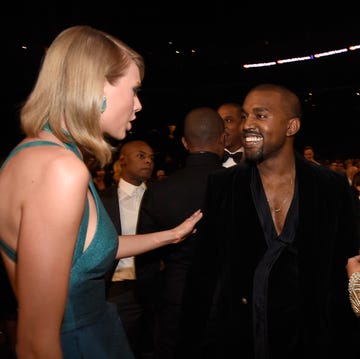In mid-September Solange Knowles went on a family outing to a Kraftwerk concert in New Orleans. When the group arrived at the venue, security guards falsely accused the singer-songwriter's son Julez and his friend of using electronic cigarettes. Although the situation was quickly quieted, it was a harbinger of things to come. Solange was dancing along to the music—isn't that what it was made for?—when a group of white women yelled at her to sit down. Then an object hit the musician on the shoulder, but she tried to believe she was imagining things. "Certainly a stranger would not have the audacity," she later wrote. Then another projectile made contact: a half-eaten lime one of the women had thrown at her.
In a recent essay, "And Do You Belong? I Do," Solange recounted this despicable scene, counteracting these vile, alienating acts by displaying her clear sense of who she is. "We belong. We belong. We belong," she wrote. Belonging is also the defining drive behind Knowles' latest album, A Seat at the Table.
As soon as the record was announced, just days ago, fans knew that they were in for not just an album, but an even bigger experience. Before the release, some lucky fans received beautiful hardbound books that contained poetry, photos, and song lyrics. The careful, stripped-back promotion was an early indication of intent. In this album, there are no mere pop songs. This is not the kind of music that is supposed to be readily understood by everyone; every song is a figurative course in the midst of a thoughtful, sumptuous feast for certain guests.
In an interview for her Saint Heron website, the singer explained, "A Seat at the Table for me is an invitation to allow folks to pull up a chair, get very close and have these hard uncomfortable truths be shared. It's not going to be pretty, it's not going to be fun, you may not get to dance to it, you're not going to breathe easily through it, but that is the state of the times that we're in right now."
Solange's music doesn't have the palatable ease of the mainstream but, rather, the urgency of necessary, specific art. Hip-hop icon Master P says as much in the album's "For Us By Us" interlude: "If you don't understand my record, then you don't understand me, so this is not for you." It is art for black people; if any non-black listeners show up, that's fine, but it's not the point.
The heavy themes that Solange addresses, such as hair as a spectacle ("Don't Touch My Hair") and segregation and racial terrorism ("Interlude: Dad Was Mad"), upon first listen, seem not to fit with her airy, melodious vocals and rhythmic tunes. But here, joy and pain are two inevitable sides of the same experience. In "Scales," Solange sings to an unnamed boy: "You're gonna shine," she declares, despite the world saying he's a "failure."
Solidarity and community are at the core of the album. Throughout A Seat at the Table, Solange reminds us that we as black people are never alone, even at a time when it seems like the state is sanctioning our deaths and our non-black peers are turning a blind eye to our continual mourning. "I'm weary of the ways of the world," she admits in "Weary." But her music is here for us. In "F.U.B.U," she declares, "When you feeling all alone / And you can't even be you up in your own home...this shit is for us." A Seat at the Table is an offering and a haven.
As Solange tweeted, A Seat at the Table was meant to provoke healing and self-empowerment. Her kind of healing does not come from only serving the sweet, but also from handling the bitterness—something her sister Beyoncé's extraordinaryLemonade also does. Solange has made an album that provides a dwelling place for those of the diaspora who are searching for a moment of peace; it transcends physical ideas of home. We may not be safe in our country, our cities, or our houses, but we can come together through any means necessary. In Solange's vision, it's in music where we can feel belonging, where we can sit at the table, and where we can explore, lament, release, and enjoy.













